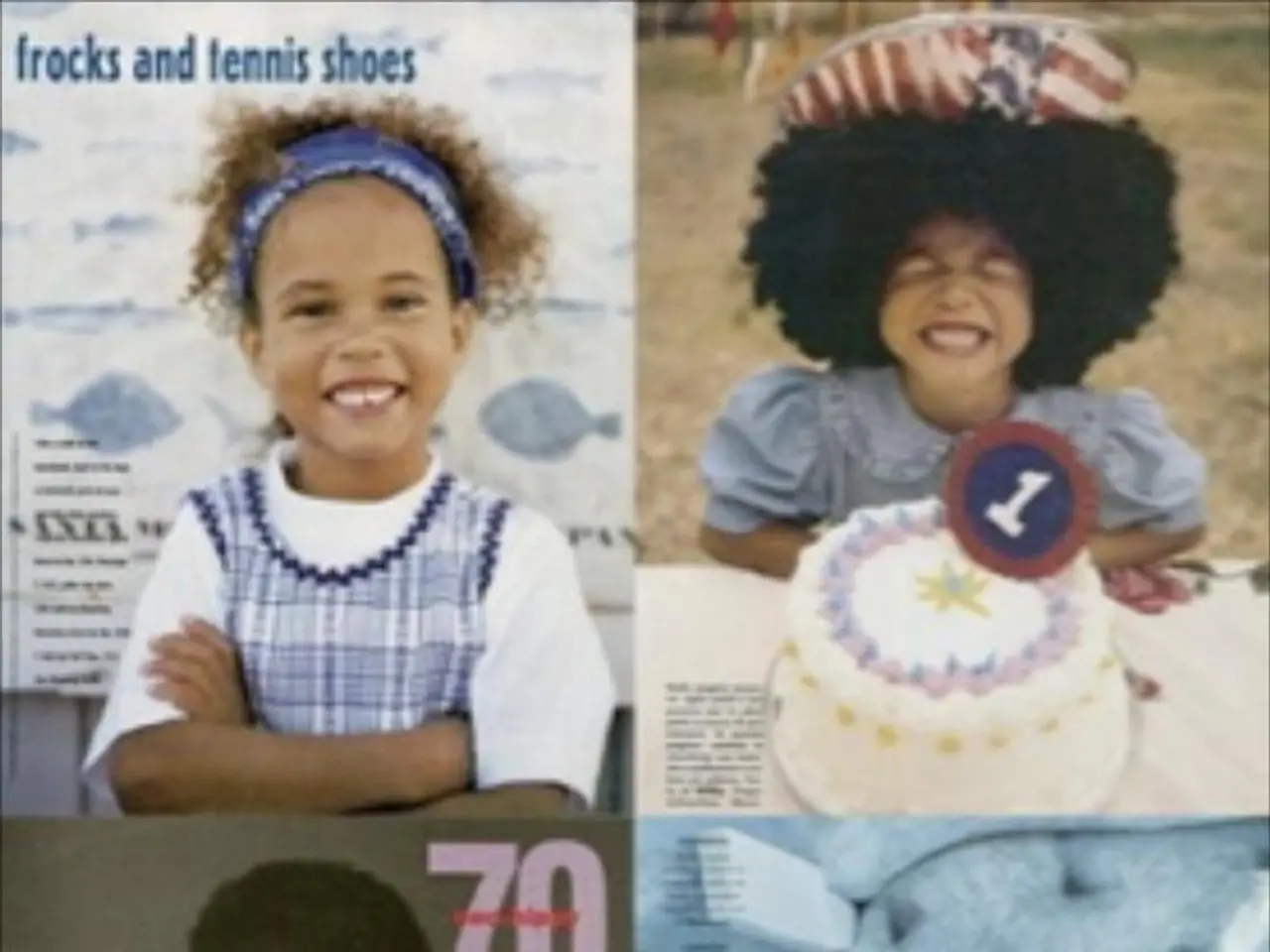Student Character Development Actions: Cultivating Essential Traits
Fostering Character Development in Children: A Collaborative Approach
In today's world, teaching children more than just academics is crucial. A well-rounded education includes character development, which equips them with essential life skills. Here's how teachers, parents, and mentors can effectively incorporate character development activities into diverse settings.
In School Settings
Educators can use activities that build self-awareness, emotional literacy, and teamwork. For instance, preschool activities like self-portraits and feelings wheels encourage children to explore their identity and express emotions, fundamental for character development. Drama games such as the "Human Knot" engage students in cooperative problem-solving and communication, promoting teamwork and empathy. Incorporating community involvement, like connecting students with local organizations or inviting guest speakers, helps children relate learning to real-life contexts and appreciate community values. Peer mentoring programs in schools leverage older students as role models, enhancing social connections and responsibility.
At Home
Parents can support character growth by creating a secure environment where children feel seen and encouraged, building trust and resilience. Encouraging independence by allowing children to make decisions and experience natural consequences in a supportive setting nurtures responsibility and self-reflection. Facilitating role play with simple props or scenarios helps children explore various perspectives, develop empathy, and improve social skills.
Within the Community
Mentors and volunteers can engage children in service projects or community-building events that teach care for others and civic responsibility, linking individual growth to the broader society. Acting as positive role models, they provide mentorship that supports the development of life skills such as leadership, perseverance, and social awareness.
Cross-Setting Strategies
Regular communication and partnership among teachers, parents, and community members create a cohesive support system for the child’s character development. Utilizing evidence-based programs like Positive Action, which integrates social, emotional, and academic growth across settings, fosters whole-child development with community involvement.
By combining self-exploration activities, social interaction games, community engagement, and supportive partnerships, children develop key life skills—such as empathy, cooperation, emotional regulation, and responsibility—that help them grow into well-rounded individuals.
The approach blends age-appropriate, context-sensitive activities with consistent collaboration among adults in a child’s life to promote effective character development. Teamwork can be taught through team sports, debate teams, theater, or group projects. Character-building should be part of everything, woven into lessons, routines, jokes, class rules—everything. Spell it out: Don't assume they'll magically "get it." Say what the trait means. Show examples.
Giving age-appropriate tasks and sticking to it helps children understand responsibility. Teaching character isn't a bonus—it's the base. Helping kids build traits like grit, honesty, respect, and compassion sets them up for life, not just tests. Character grows through repetition. Give regular chances to show kindness, courage, or self-control—on purpose.
Pay attention to moments when character shows up, such as when a student helps a classmate without being asked or owns up to a mistake. Reading books or watching movies with characters who make tough choices or learn life lessons is a way to teach values. When they do it right, say so. Be specific. When they mess up, don't shame—just coach. Let students give each other feedback with clear rules, such as "Hey, I noticed you stayed calm during that group mess-up—nice job."
Record short stories of little wins, close calls, or chances missed to track patterns over time and help identify where a student is growing (or still stuck). Make your space feel like a team, not a test. Mentorship programs help students learn how to lead, listen, and level up their people skills. Sharing stories from one's life that show real moments of courage, honesty, or messing up and making it right helps kids learn. Walk the talk: Kids copy what they see. If you want them to be honest, kind, or patient, show it yourself. When they do it right, say so. Be specific. When they mess up, don't shame—just coach.
By following these strategies, we can nurture the next generation to become empathetic, responsible, and well-rounded individuals, ready to face the challenges of the world.
Incorporating psychological concepts, such as self-discipline and focus, into character development activities promotes not only personal growth but also enhances children's mental health and overall functioning. For instance, introducing mindfulness exercises or goal-setting activities in school settings could aid in developing a growth mindset.
Encouraging educational and self-development activities at home, like reading books that highlight resilience and personal growth or exploring online resources on emotional intelligence, can further nurture these qualities in children.
Lifestyle choices also play a significant role in character development. Parents can set positive examples by demonstrating honesty, empathy, and self-discipline, fostering an environment that emphasizes personal growth and continuous learning.
Furthermore, by working together and sharing resources, educators, parents, and mentors can create a holistic approach to character development. This could include partnering with psychologists or educators specializing in character development to implement evidence-based programs that address emotional intelligence, self-discipline, empathy, and other critical life skills.




